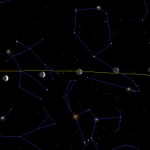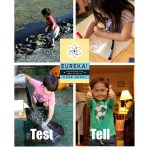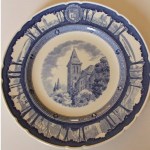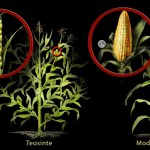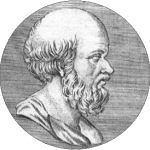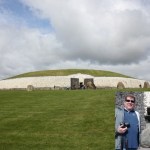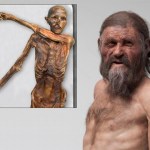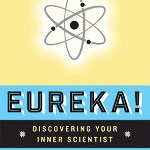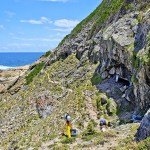Book Writing
One of the questions from a caller when I was on the "Think" show was about how to keep kids interested in science. As I said, the issue isn't so much creating in interest as working to not squelch the interest that's already there. Taking kids to cool places like zoos and science museums is a great way to do that, and just generally encouraging them to ask questions and try things out.
But if you'd like some more specific gift ideas, here's a selection of science-y things that SteelyKid and The Pip enjoy that you might try out on other kids of your acquaintance:
-- Magna-Tiles These. Are.…
Returning to our mostly-chronological ordering after yesterday's brief excursion, we come to one of the great problems of the 1700's, namely determining the longitude at sea. Latitude is easy to find, based on the height of the Sun at noon-- we told that story last week-- but longitude is much trickier. Thanks to the rotation of the Earth, the best way to measure longitude is by measuring time-- if you know what time it is where you are, and what time it is at some reference point (now established as Greenwich, UK), the difference between those times tells you the difference in longitude.…
Two quick notes:
-- In a little more than half an hour Buttercup will marry Humperdinck I'll be talking about Eureka on talk radio in Ireland. This was put together very quickly, thus the short notice.
-- I'll be signing books this Sunday, the 14th, at The Open Door Bookstore in Schenectady. If you're in the area, please stop by; if you're not, and would like a signed book, you might give them a call and see if they'll ship you one. I'm happy to sign and personalize extra copies for that sort of thing. They make great gifts for all manner of winter solstice holidays...
Last week Kate pointed me to this post about heroic stories of science saying "This seems relevant to your interests." And, in fact, a good deal of the post talks about Patricia Fara's Science: A Four Thousand Year History, the Union library's copy of which is sitting on my desk, where I had looked something up in it just that morning. (Specifically, the part where Fara notes that the distinction between "science" and "technology" is largely a class-based fiction, dividing high-status philosophers from grubby practical mechanics.)
There are a bunch of things going on in this, and most of them…
I've been trying to keep to a roughly chronological ordering of these stories, but this slow-motion snow storm that was waiting to greet us on our return from Florida made the schools open on a two-hour delay today, which eats the time I usually use for blogging and books stuff. So I'm going to jump forward three hundred years, to a story that I can outsource.
To set the stage, in the aftermath of WWII, Richard Feynman took up a faculty job at Cornell, but between working on the Manhattan Project and the death of his beloved wife, he found that he was completely burned out, and not able to do…
Yesterday, I drove through the slush to Albany to do an appearance on KERA radio's "Think" from a studio there. The audio is at that link.
It was a bit of a strange experience, because I drove to a place to do the interview in a radio studio, but I was the only one in the room, taking questions from a disembodied voice. I enjoyed it, though, and the audio quality is a lot better than you would've gotten from even a land-line phone. This was a live show, including some call-in questions, and that always has a working-without-a-net quality that is kind of exciting. I got in a bunch of stories…
The final step of the scientific process is to share your results with others, and that's the step where things are most prone to breaking down. Countless great discoveries have been delayed or temporarily lost because the people who made them were more concerned with protecting "their" secrets than with sharing new knowledge with the world. A classic example of this, that I first heard from Michael Nielsen, is Robert Hooke in 1676 first reporting the relationship for elastic forces as "ceiiinossssttuv," which unscrambles to "ut tensio, sic vis," indicating that the force is proportional to…
So, you've picked up your copy of the just-released Eureka: Discovering Your Inner Scientist-- you have bought a copy, right?-- and now you're thinking "I'd love to curl up and read this, but what should I listen to while I do that?"
Well, never fear, I'm here to help. Also, I'm really tired, and this seems like a quick and easy blog post... Anyway, here are some of the crucial records involved in the making of this book.
1) Teeth Dreams by the Hold Steady This was probably the most crucial album of the lot, because it came out just at the time I needed to power through a whole bunch of edits…
Today is the official release date for Eureka: Discovering Your Inner Scientist, so of course there are a bunch of exciting things happening:
-- There's a short excerpt at the Science of Us blog from New York Magazine. This is a chunk of the Introduction, about how scientists are smart, but not that smart.
-- I wrote a Big Idea essay at Whatever, talking about how this book is about the BIGGEST idea in the history of humanity. Which is only a tiny bit of hyperbole.
-- Rosemary Kirstein included Eureka as a gift suggestion, which is very cool, as she writes awesome books. You should check them…
I tooke a bodkine gh & put it betwixt my eye & [the] bone as neare to [the] backside of my eye as I could: & pressing my eye [with the] end of it (soe as to make [the] curvature a, bcdef in my eye) there appeared severall white darke & coloured circles r, s, t, &c. Which circles were plainest when I continued to rub my eye [with the] point of [the] bodkine, but if I held my eye & [the] bodkin still, though I continued to presse my eye [with] it yet [the] circles would grow faint & often disappeare untill I removed [them] by moving my eye or [the] bodkin.
If [the…
Copies of Eureka: Discovering Your Inner Scientist have been turning up in the wild for a while now, but the officially official release date is today (available from Amazon, Barnes and Noble, IndieBound, Powell’s, and anywhere else books are sold). To mark that, here's some stuff I wrote about the core message of the book, presented in Internet-friendly listicle form:
Eight Things You Need to Know About Science
1) Everybody Is a Scientist: Most people picture scientists as remote eggheads, who think in ways that ordinary people can’t comprehend, but the reality is very different. Scientists…
This entry doesn't have a fictionalized story both because I'm on vacation, and because I don't think there's a single dramatic turning point in this particular story. It's probably one of the most impressive human accomplishments of the last umpteen thousand years, though, and definitely deserves a place in any rundown of wonders of science. I'm speaking, of course, of corn.
To a modern American, of course, corn (or "maize" if you want to sound European) doesn't seem especially impressive or scientific, but it ranks as a great accomplishment because of where it came from. Which, as far as we…
Following on yesterday's story of transformative discoveries starting by accident, we'll jump from the Middle East to the Far East for the probably apocryphal story of the Empress Leizu (also sometimes referred to as Xi Lingshi) who is credited with the discovery of silk around 2600 BCE. One of the many versions of the story has it that she was drinking tea in her garden, and a silkworm coccoon fell into her tea. When she poked at it to get it out of the hot water, the thread unraveled, and she became fascinated with it.
From there, her experiments with silk threads and silkworms led her to…
Borne of the flowing water (...)
Tenderly cared for by the Ninhursag,
Borne of the flowing water (...)
Tenderly cared for by the Ninhursag,
Having founded your town by the sacred lake,
She finished its great walls for you,
Ninkasi, having founded your town by the sacred lake,
She finished its great walls for you
Your father is Enki, Lord Nidimmud,
Your mother is Ninti, the queen of the sacred lake,
Ninkasi, Your father is Enki, Lord Nidimmud,
Your mother is Ninti, the queen of the sacred lake.
You are the one who handles the dough,
[and] with a big shovel,
Mixing in a pit, the bappir with…
"More wine?"
"Hmm? Oh, yes, thank you. Sorry, I was--"
"Thinking about mathematics, I wager. Prime numbers was it?"
"No, just distracted. It's this blasted heat."
"It is the longest day of the year."
"Yes, but normally not so hot."
"Especially here. You think this is hot, visit me in Syene sometime. You think it gets hot here... You would melt in Syene in the summer."
"So I hear. I suppose it's the moderating influence of the ocean that keeps us cooler."
"That, and we're closer to the Sun."
"What?"
"It's true. Today in Syene, the Sun will be directly overhead at mid-day, while you still have…
A couple of quick updates on Eureka publicity, as we get on a plane today to take the kids to Florida for the weekend:
-- APS News has an excerpt from the chapter on collecting hobbies. This is kind of choppy, obviously cut down to meet a word count limit of some sort, but it gets the basic flavor across.
-- I'll be appearing on KERA radio's "Think" on Wednesday December 10 from 12-1 Central time (1-2pm Eastern). This will be a live interview, possibly including call-in questions.
-- I'll be on WAMC's Roundtable on December 19; I don't have the exact time yet, but will update when I get that…
The southeastern sky had been lightening for some time, stars slowly fading away. Off to the west, a band of clouds was moving in, obscuring stars as it came, but they wouldn't make it in time to block the sunrise. A good thing, as the last two dawns had been cloudy. There would be maybe two more chances this year to see if everything worked, then another full turn of the seasons before their next chance.
She sat on the cold ground, behind the offering bowls, a bit off the line of the main passage. She was inside the ring of posts marking the final perimeter, but outside what would become…
The fungal tea tastes vile, and not for the first time he considers dumping it on the last of the morning's fire. It does seem to be helping the pain in his gut, though, as the medicine man said it would, so he gulps the last of it with a grimace. Around him the younger members of the raiding party are packing up the camp, making ready to head higher up the mountain.
He checks the head of his axe, out of habit, making sure the copper blade is still sharp and securely fixed. Not that he had much doubt-- he had shaped it himself, and it would take more than chopping wood for last night's fire…
A few smallish items regarding Eureka: Discovering Your Inner Scientist:
-- I'll be doing a signing at the Open Door bookstore in Schenectady next Sunday, the 14th, from 12-1:30. The Open door is one of the kids' favorite spots, as it's right outside the Sunday market we go to every week, so this is fun. Last time I did a signing there, they had a couple of copies for me to sign from people who couldn't make it, so if you'd like a signed copy, you could give them a call, and see what they can do.
(No other bookstore appearances scheduled right at the moment, but if you'd like me to come…
She kneels on the dirt and watches the elder study the rocks she brought. Five fist-sized chunks of red stone, laboriously hacked from an outcrop. Half a day walking there and back, and half a day pounding rocks against rocks to yield this offering.
The elder's hands are stained the same red as the stone, from years of grinding and mixing the paint that is her people's sign. Behind him in the cave, she can see others banging, grinding, and mixing. The summer festivals are coming soon, and a great deal of paint will be needed. He turns her rocks round and round, studying all sides.
Finally,…
